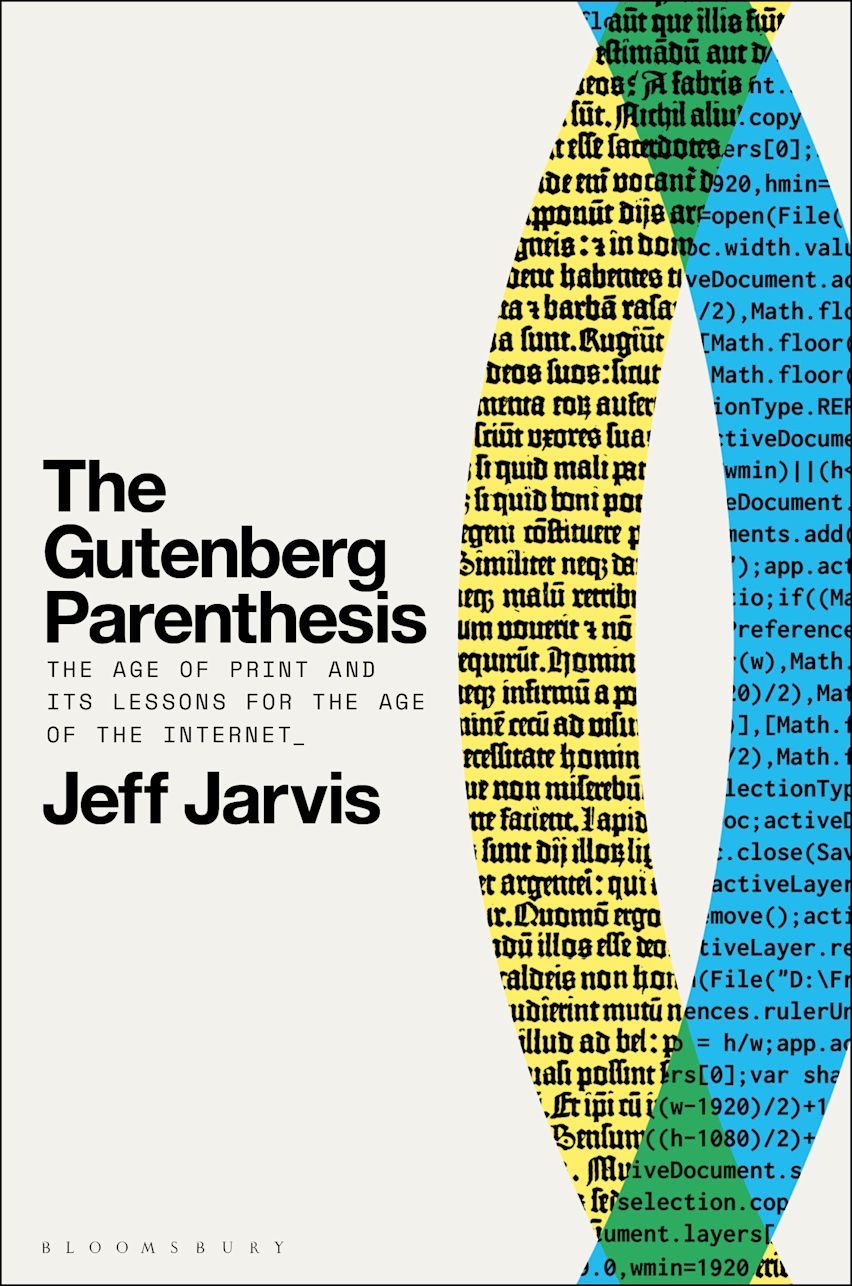The Gutenberg Parenthesis

Journalist scholar Jeff Jarvis walks through the history of printing at breakneck speed, its technological foundation, and its impact on society as books, newsletters, and newspapers circulated across the globe. The reactions to this new technology and forms of publication were a litany of all too familiar complaints we’ve been hearing since the Web became popularised: The spread of lies, controversy-bread celebrities, the flood of mundane content.
We find ourselves at the beginning of a new digital parenthesis in which we move from a world where communication is dominated by print to one where communication is primarily digitally mediated. We are in the first stages of this development and therefore unable to understand what a new digitally dominated world will eventually look like once the dust settles. In print, truth and sanity mostly prevailed, eventually leading to the Enlightenment, modern scientific discovery, and democratic movements. And so, Jarvis’ argument goes, we should let the Web evolve, assuming the worthwhile ideas will win eventually despite all reactionary push-back.
But there is a difference between the early days of print and the early days of the web in which we currently find ourselves. In the early days of print, there were a large number of publishing houses in every country and many cities. The resulting diversity provided a shield from censorship of the church and ruling aristocrats so the better, more truthful ideas spread and prevailed.
On the Web, we have three to five websites, which account for the majority of global web traffic. And the leaders of the businesses behind these websites are susceptible to reactionary ideas and are pro-actively cosying up to autocratic regimes. It’s as if in the early days of print there were only five publishing houses, all of them from Germany, all of them led by associates of the king or the local bishop. How do we think the reformation would have played out in that scenario?
(2023) Bloomsbury Academic, 328 pages, ISBN: 9781501394829.